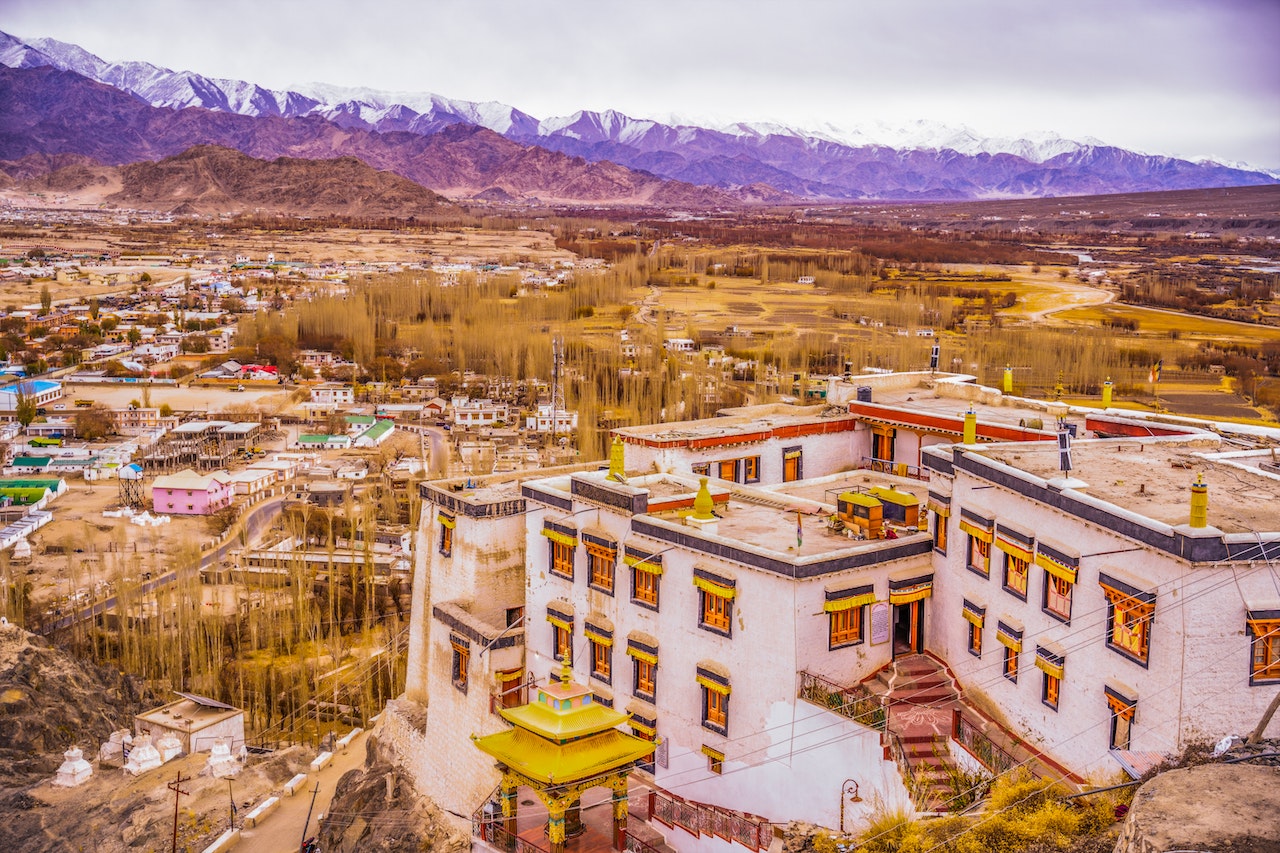Explore The Contents
- 1 Introduction
- 2 Understanding IoT and Smart Cities
- 3 IoT Integration in Pakistan’s Urban Landscape
- 4 Benefits of IoT-Enabled Smart Cities
- 5 Challenges and Considerations
- 6 Initiatives and Projects in Pakistan
- 7 Ways IoT is Changing Urban Living
- 8 IoT’s Role in Energy Management
- 9 Enhancing Transportation through IoT
- 10 Smart Healthcare Solutions
- 11 Agriculture and IoT
- 12 Security and Surveillance Systems
- 13 Sustainability and Environmental Monitoring
- 14 Data Privacy and Cybersecurity
- 15 Future Outlook for IoT and Smart Cities in Pakistan
- 16 Embracing Technological Transformation
- 17 Smart Transportation for Efficient Cities
- 18 Revolutionizing Healthcare Services
- 19 Agriculture 4.0: The Future of Farming
- 20 Ensuring Security and Privacy
- 21 A Glimpse into the Future
- 22 Conclusion (IoT and Smart Cities in Pakistan)
Introduction
The rapid urbanization in Pakistan necessitates innovative solutions to manage resources efficiently and enhance the quality of life for its citizens. IoT, the interconnection of everyday objects via the internet, presents an avenue for creating smart cities that can address these challenges.
Read More:The Promising Scope of IoT in Pakistan: A Technological Revolution 2023
Understanding IoT and Smart Cities
IoT involves embedding sensors, software, and other technologies into various devices and infrastructures to enable them to collect and exchange data. Smart cities leverage this data to make informed decisions, optimize resource utilization, and provide better services to residents.
IoT Integration in Pakistan’s Urban Landscape
Pakistan has seen a surge in IoT adoption, particularly in urban areas. From smart traffic management to waste disposal, various sectors are integrating IoT to streamline operations and improve citizen services.
Benefits of IoT-Enabled Smart Cities
IoT-enabled smart cities offer a plethora of benefits. These include improved traffic flow, reduced energy consumption, enhanced healthcare services, better waste management, and increased overall quality of life.

Challenges and Considerations
However, the journey to a smart city is not without its challenges. Balancing privacy concerns, ensuring data security, managing the initial setup costs, and providing equal access to technology are some hurdles that need to be addressed.
Initiatives and Projects in Pakistan
Several initiatives are already underway in Pakistan. For instance, Lahore Smart City and Islamabad’s Blue Area are pioneering projects that aim to integrate IoT for better urban management.
Ways IoT is Changing Urban Living
Efficient Transportation: IoT-powered traffic management systems reduce congestion and enhance commuting experiences.
Energy Management: Smart grids and energy-efficient systems optimize power distribution and consumption.
Healthcare Revolution: Remote patient monitoring and healthcare wearables transform how medical services are delivered.
Precision Agriculture: IoT sensors enable farmers to monitor crops, soil conditions, and weather for improved agricultural practices.
Enhanced Security: Surveillance cameras equipped with IoT technology improve public safety and crime prevention.
IoT’s Role in Energy Management
In a country facing energy challenges, IoT can play a pivotal role. Smart energy meters and grid optimization help in better management and distribution of power.
Enhancing Transportation through IoT
Congestion and traffic-related issues are endemic in Pakistani cities. IoT-powered traffic management, intelligent parking solutions, and real-time public transportation tracking alleviate these problems.
Smart Healthcare Solutions
IoT’s integration into healthcare leads to remote patient monitoring, telemedicine, and better data-driven decision-making for hospitals and clinics.
Agriculture and IoT
The agricultural sector benefits immensely from IoT-based solutions. Smart sensors collect data that assists farmers in making informed choices for higher yields and resource conservation.
Security and Surveillance Systems
Public safety receives a boost through IoT-driven surveillance systems. Real-time monitoring and predictive analytics help law enforcement agencies maintain law and order effectively.
Sustainability and Environmental Monitoring
IoT enables continuous environmental monitoring. This data facilitates the implementation of policies and practices that ensure sustainable development.

Data Privacy and Cybersecurity
As IoT collects vast amounts of sensitive data, ensuring data privacy and cybersecurity becomes paramount. Robust measures must be in place to protect citizens’ information from breaches.
Future Outlook for IoT and Smart Cities in Pakistan
The trajectory of IoT and smart cities in Pakistan is promising. As technology advances and awareness grows, more cities are likely to adopt IoT to create urban environments that are efficient, livable, and sustainable.
Embracing Technological Transformation
The integration of IoT into Pakistan’s urban infrastructure marks a significant step toward embracing technological advancements for the betterment of society. As the population continues to grow, cities face challenges related to traffic congestion, energy consumption, healthcare accessibility, and more. IoT offers a solution by creating interconnected systems that can monitor, analyze, and optimize various aspects of urban life.
Smart Transportation for Efficient Cities
One of the key areas where IoT is making a substantial impact is transportation. Pakistan’s cities are notorious for traffic congestion, leading to wasted time, increased pollution, and decreased productivity. Through IoT-powered traffic management systems, real-time data can be collected from sensors embedded in roads, vehicles, and traffic signals. This data allows for dynamic adjustments to traffic flow, optimizing signal timings, rerouting vehicles to less congested routes, and ultimately reducing travel time.
Moreover, intelligent parking solutions are alleviating the perennial struggle of finding parking spaces. IoT-enabled parking systems provide real-time information about available parking spots, guiding drivers to open spaces and minimizing the frustration associated with parking.
Revolutionizing Healthcare Services
The healthcare sector is another domain that benefits immensely from IoT integration. In a country where access to quality healthcare can be a challenge, IoT offers a solution by enabling remote patient monitoring and telemedicine. Patients can now have their vital signs and health data continuously monitored from the comfort of their homes. This data is transmitted to healthcare providers, allowing for timely interventions and reducing the need for frequent hospital visits.
IoT also aids hospitals in managing resources efficiently. Through the implementation of IoT devices, hospital equipment can be monitored to ensure proper functioning, preventive maintenance can be scheduled, and inventory levels can be optimized. This leads to improved patient care and cost savings for healthcare institutions.
Agriculture 4.0: The Future of Farming
In a country where agriculture is a cornerstone of the economy, IoT has the potential to revolutionize farming practices. Smart agriculture, often referred to as Agriculture 4.0, involves the use of IoT sensors to collect data on soil moisture, temperature, humidity, and crop health. This data is then analyzed to provide actionable insights to farmers.
Farmers can make informed decisions about irrigation schedules, nutrient application, and pest control based on real-time data. This not only increases crop yields but also reduces water and fertilizer wastage, contributing to sustainable farming practices.
Ensuring Security and Privacy
While the benefits of IoT are undeniable, it’s crucial to address the challenges associated with data security and privacy. As IoT devices collect vast amounts of data, there’s an inherent risk of data breaches and unauthorized access. To mitigate these risks, robust cybersecurity measures must be in place. Encryption, secure authentication protocols, and regular software updates are essential to safeguard sensitive information.
Additionally, as smart cities rely on data collection for decision-making, concerns about individual privacy arise. Striking a balance between data-driven urban management and citizens’ privacy rights is a delicate yet imperative task.

A Glimpse into the Future
The journey towards building smart cities in Pakistan is still in its early stages, but the progress is promising. Lahore Smart City and Islamabad’s Blue Area are prime examples of how IoT can transform urban living. As technology continues to advance and awareness spreads, more cities are likely to follow suit.
Imagine a future where traffic congestion is minimized, energy is used efficiently, healthcare services are accessible to all, and farming is optimized for higher yields. This is the vision that IoT-powered smart cities hold for Pakistan—a vision of a connected nation where technology serves as the foundation for progress.
Conclusion (IoT and Smart Cities in Pakistan)
IoT and smart cities represent the future of urbanization in Pakistan. By harnessing the power of technology and connectivity, the nation can pave the way for a brighter, more efficient, and interconnected future.




